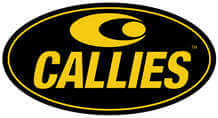
MS Access As A Dev Tool
Access continues to be a highly efficient tool for business database development.
Don't let your Access database disrupt your San Francisco business. We fix broken forms and reports, clean up tables and
relationships, rebuild slow queries, and replace fragile macros with reliable VBA. We also improve multi-user reliability, add
basic error handling and backups, and connect to SQL Server for stable, centralized storage.
Call (323) 285-0939 now for a FREE consultation.
 like a spinning wheel that makes you wonder if your mouse froze. Then you try printing a report for that afternoon meeting (the one that starts in 20 minutes), and boom, it crashes on page two.
Multiple people working at once? That's when things really fall apart. Error messages everywhere, data getting overwritten, people yelling across the office asking if anyone else can get in.
If you're sitting there nodding your head right now, trust me, you've got plenty of company.
like a spinning wheel that makes you wonder if your mouse froze. Then you try printing a report for that afternoon meeting (the one that starts in 20 minutes), and boom, it crashes on page two.
Multiple people working at once? That's when things really fall apart. Error messages everywhere, data getting overwritten, people yelling across the office asking if anyone else can get in.
If you're sitting there nodding your head right now, trust me, you've got plenty of company.
Just last month we worked with a client (we cannot us their name because we both signed an NDA) who faced exactly this problem. The client, financial technology company in San Francisco called us up, and I could literally hear the frustration in their voice. Picture this: they're deep into compliance tracking — you know, the kind of stuff where you absolutely cannot mess up because regulators don't play around—and their database would just corrupt itself. Like, poof, gone. Hours of meticulous data entry, vanished into thin air. Their whole team was on the verge of losing it, especially during those nightmare weeks before regulatory deadlines hit. We examned the database expecting maybe some bloat issues or outdated queries. Nope. Their table relationships looked like someone had thrown spaghetti at a wall and called it architecture. Plus, there was literally zero data validation happening, so garbage data was flowing in unchecked and wreaking havoc.
We performed a deep analysis and rebuilt everything properly—clean relationships, smart validation rules that actually catch problems before they spiral. The change? Honestly, it was like watching someone take off a 50-pound backpack they'd been carrying for years. Their staff members now handles double the work they used to struggle with, maybe more, and they haven't seen a single crash since we wrapped up. The look of relief on their faces when we finished was something else.
We work with businesses all over the Bay Area. San Francisco, obviously, but also Oakland, Berkeley, San Jose, Daly City, South San Francisco, Pacifica, Brisbane, you name it. What we've learned after years of doing this? California's financial and tech companies move at warp speed, and your database better keep up or you're toast. When things change as fast as they do around here, you need systems that just work, period. No excuses, no downtime, no crossing your fingers and hoping. That's what we build - Access tabases that are bulletproof even when everything else is chaos.
Call us now at (323) 285-0939 to talk directly with our owner and Principal Programmer, Alison Balter,a Microsoft Certified Partner and a Microsoft Certified Professional.

San Francisco businesses call us when their databases are genuinely broken and they need someone who can actually fix the problem, not just patch it temporarily. Our lead programmer, Alison Balter, is recognized as one of the top Microsoft Access experts in the country—she's been building bulletproof Access applications for over thirty years, the kind that hold up when you've got fifty people trying to pull reports at once during quarter-end chaos. As a published author of 15 comprehensive books on Access development and a sought-after speaker at major programming conferences nationwide, Alison brings a level of expertise you simply won't find with typical database consultants. Here's what really sets us apart: we've spent years mastering San Francisco's incredibly diverse business landscape. We're talking Financial Services firms down in the Financial District who need bulletproof audit trails, Technology Startups scattered across California that are scaling faster than their infrastructure can handle, Healthcare Organizations throughout the Bay Area dealing with HIPAA compliance nightmares, and Biotech firms juggling research data and regulatory requirements that would make your head spin. Each of these industries has completely different needs, and Alison's deep technical knowledge means she can architect solutions that actually solve complex problems instead of creating new ones.
Alison doesn't travel to every project site because that is just not practical, but when a database situation is genuinely complex or requires an in-person assessment, she makes the trip herself. Her hands-on approach, combined with her decades of programming expertise, means San Francisco businesses end up with enterprise-grade solutions tailored to how they actually work, not some generic template that kind of fits if you squint at it the right way. When you work with an Access expert at Alison's level, you're getting someone who's literally written the book on Microsoft Access development.
Picture this: it's Q4, San Francisco's busiest business season, and your Access database suddenly starts moving like molasses. Or worse, it completely freezes up the moment your whole team tries accessing customer data at the same time. Sound familiar? We've seen it a hundred times, and with Alison's expertise, we know exactly how to untangle the mess and get everything running smoothly again. Our process isn't complicated, really. We start by sitting down and figuring out how your staff actually uses data on a daily basis, not how they're supposed to use it according to some manual, but how they really work. Then Alison and our team build custom forms, reports, and automated processes around that genuine workflow, applying best practices she's refined over three decades of Access programming. Because what's the point of having a database expert if they just give you cookie-cutter solutions instead of leveraging their deep knowledge to make your life easier?






Access continues to be a highly efficient tool for business database development.

How to create a Microsoft Access application with some unique tips and tricks.

Your Access developer near me has some great info for you about using Access efficiently.
Most San Francisco businesses hit the same wall: their Access database works fine for one person but crawls or crashes when multiple users try to work simultaneously. The solution isn't buying bigger servers - it's implementing proper split database architecture that separates the user interface from data storage.
A split database consists of two components: the front-end (.accdb file) containing forms, reports, queries, and VBA code installed on each workstation, and the back-end (.accdb file) containing only tables stored on a network drive or server. This architecture eliminates the biggest cause of corruption and slowdowns - multiple users editing the same database file.
Here's the technical detail most programmers miss: Access creates lock files (.laccdb) to manage concurrent access, but these become bottlenecks when the entire database shares one file. With split architecture, each front-end gets its own lock file while sharing data through ODBC or direct table links. The result? Users can work simultaneously without conflicts because they're accessing separate interface files that connect to shared tables.
For San Francisco companies needing even better performance, we migrate the back-end to SQL Server while keeping Access front-ends. This hybrid approach gives you enterprise database performance with the familiar Access interface your staff already knows. The key is using SQL Server's connection pooling and query optimization while maintaining Access's rapid application development capabilities.
Visual Basic For Applications (VBA) transforms Access from a simple database into a powerful business automation platform. The secret is understanding event-driven programming and how to leverage Access's object model effectively. Most San Francisco businesses barely scratch the surface of what's possible with proper VBA implementation.
Event procedures are where the real power lies. Form_Load events can populate combo boxes with filtered data based on user permissions. BeforeUpdate events validate data entry in real-time, preventing bad data from entering your system. AfterUpdate events can trigger calculations, send email notifications, or update related records automatically. This isn't just convenience - it's bulletproof data integrity.
Here's a technique that saves San Francisco companies hours of manual work: using VBA to integrate with other Office applications. The CreateObject function lets you control Excel for complex calculations, Word for document generation, and Outlook for automated communications. For example, a financial services firm can generate compliance reports in Word, populate Excel analysis sheets, and email everything to regulators - all triggered by a single button click in Access.
Error handling separates professional applications from amateur projects. Using On Error GoTo statements with meaningful error messages and recovery options keeps your database running when unexpected situations occur. We implement centralized error logging that captures user actions, error details, and system state - invaluable for troubleshooting issues in production environments. The goal is creating applications that handle problems gracefully instead of crashing with cryptic error messages.
San Francisco businesses call MS Access Solutions at (323) 285-0939 when their databases stop cooperating. We've been building and fixing Microsoft Access systems for more than 25 years, working with everyone from small financial firms to major technology companies. Our client list includes California state agencies, San Francisco City departments, local universities, and everything in between - medical practices, law firms, nonprofit organizations, and financial operations throughout the Bay Area.
When your database slows down or crashes, your whole operation suffers. People can't enter orders, pull up customer information, or generate the reports they need. We step in to diagnose what's wrong and get things working again. Whether you're running a simple Access database for your team or a complex system that connects Access to SQL Server, we have the experience to fix it and make it better.
Our programmers handle the tough stuff - databases that need to support dozens of users, systems that integrate with other software, and legacy applications that haven't been updated in years. If your queries are running slowly, your database is getting corrupted, or you're outgrowing your current setup, we can rebuild it to handle whatever you throw at it.
Sometimes you don't need a complete overhaul. Maybe a report stopped printing correctly after an Office update, or a form that used to work fine now throws error messages. We handle these smaller repairs all the time because we know they're just as important to your daily operations as the big projects.
Nobody should have to fight with their database software every day. We fix the problems so you can get back to running your business. Here's what San Francisco companies typically need help with:
Whether you need emergency repairs or want to build something new, we're here to help San Francisco businesses get their data systems working right.
Find out more about our Microsoft Access prgrammer services on the Microsoft Access Programmer Oakland, California web page.

Answer: Over time, as the database grows in size and usage, performance issues can arise due to database bloat. Temporary files and unused data fragments accumulate, which can slow down your system significantly. To fix this, we usually begin by running the "Compact and Repair" tool in Access, which helps clean up the database, but if the issue persists, we may suggest optimizing your queries, re-indexing tables, or even migrating the data to SQL Server for better scalability and performance.
Answer: Absolutely! We specialize in taking over databases developed by previous employees. First, we thoroughly assess the structure of the database and document the design and processes that were used. Then, we stabilize and optimize the system to ensure it meets your current business needs. If needed, we also provide training for your team to make sure everyone is comfortable with the updated system, ensuring a seamless transition.
Answer: If your Access database can no longer handle the increasing volume of data and users, it’s time to look at options for scaling. One solution is to split the database into a front-end (for user interaction) and back-end (for data storage), which can help improve performance. If scalability is still an issue, we recommend migrating your data to SQL Server while keeping the Access front-end, allowing you to take advantage of SQL Server's powerful back-end features without losing the familiar Access interface.
Answer: The timeline for fixing a broken Access database depends on the nature of the problem. Simple issues like form errors or minor data inconsistencies can typically be fixed within a few hours. However, if the database is severely corrupted or if there are performance bottlenecks, it could take several days to a week to resolve. We always provide an initial assessment and an estimated timeline before beginning any work, so you’ll know what to expect.
Answer: Data security in Access is handled through a combination of access controls, encryption, and regular backups. We implement user-level security by setting up specific permissions for different roles, ensuring that only authorized individuals can access or modify sensitive data. Additionally, we enable encryption for both data at rest and in transit to protect your information from unauthorized access. Lastly, we set up regular backup procedures to ensure that your data can be recovered in case of a failure or security breach.
Answer: Integrating your Access database with other systems, like CRM or ERP platforms, can streamline your business processes. We achieve this by setting up connections through ODBC (Open Database Connectivity) or using VBA scripting to automate data exchanges between systems. We also leverage API connections for real-time data transfer and ensure that all systems are synchronized, minimizing the need for manual data entry and reducing the chance for errors.
Answer: If your Access database becomes corrupted, the first step is to run the built-in "Compact and Repair" tool, which can fix minor issues. If that doesn't resolve the problem, we recommend restoring the database from a recent backup. If you don't have a backup, we may try importing the database objects into a new database file. In cases of severe corruption, we can also look into third-party recovery tools or professional database repair services to attempt data recovery.

